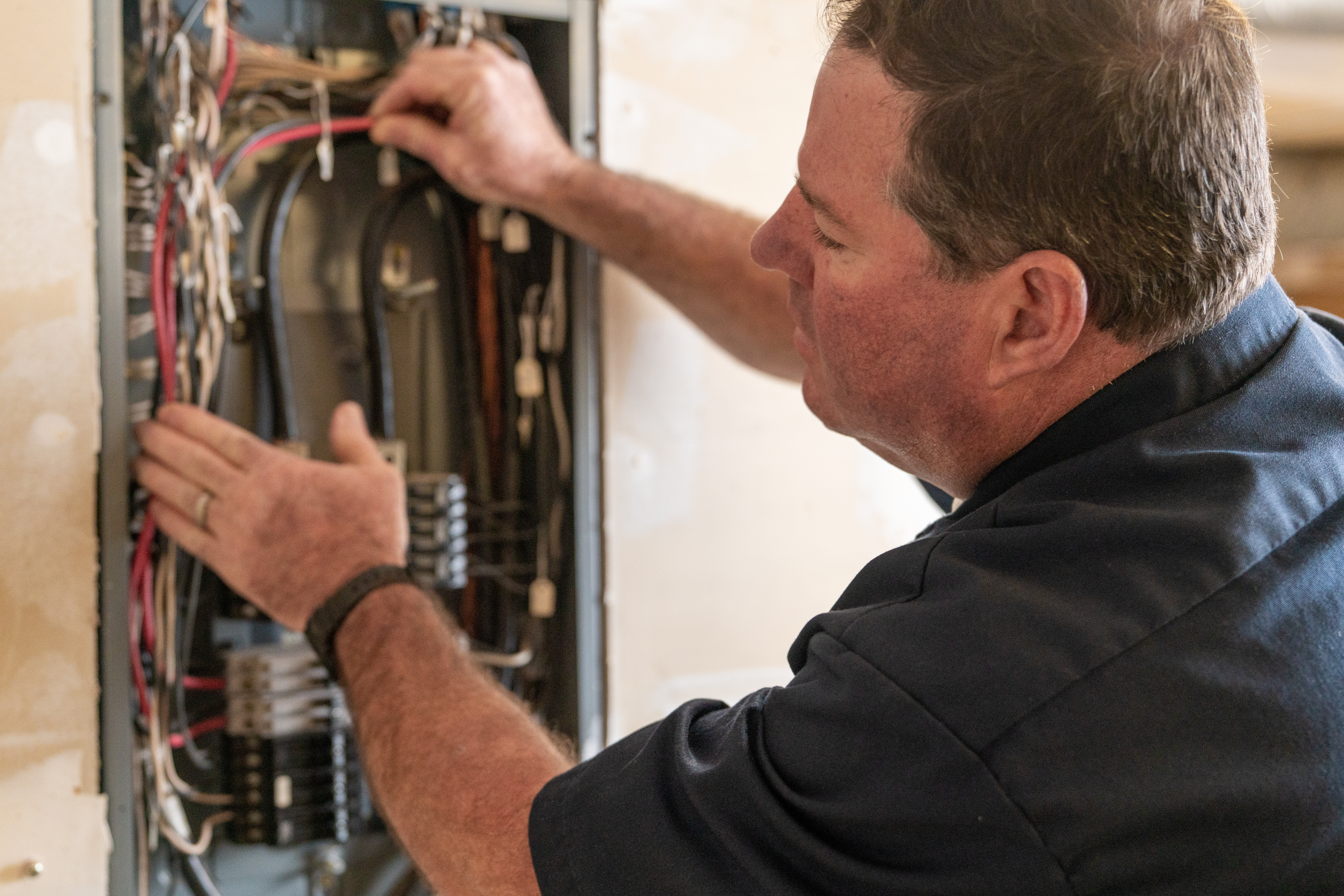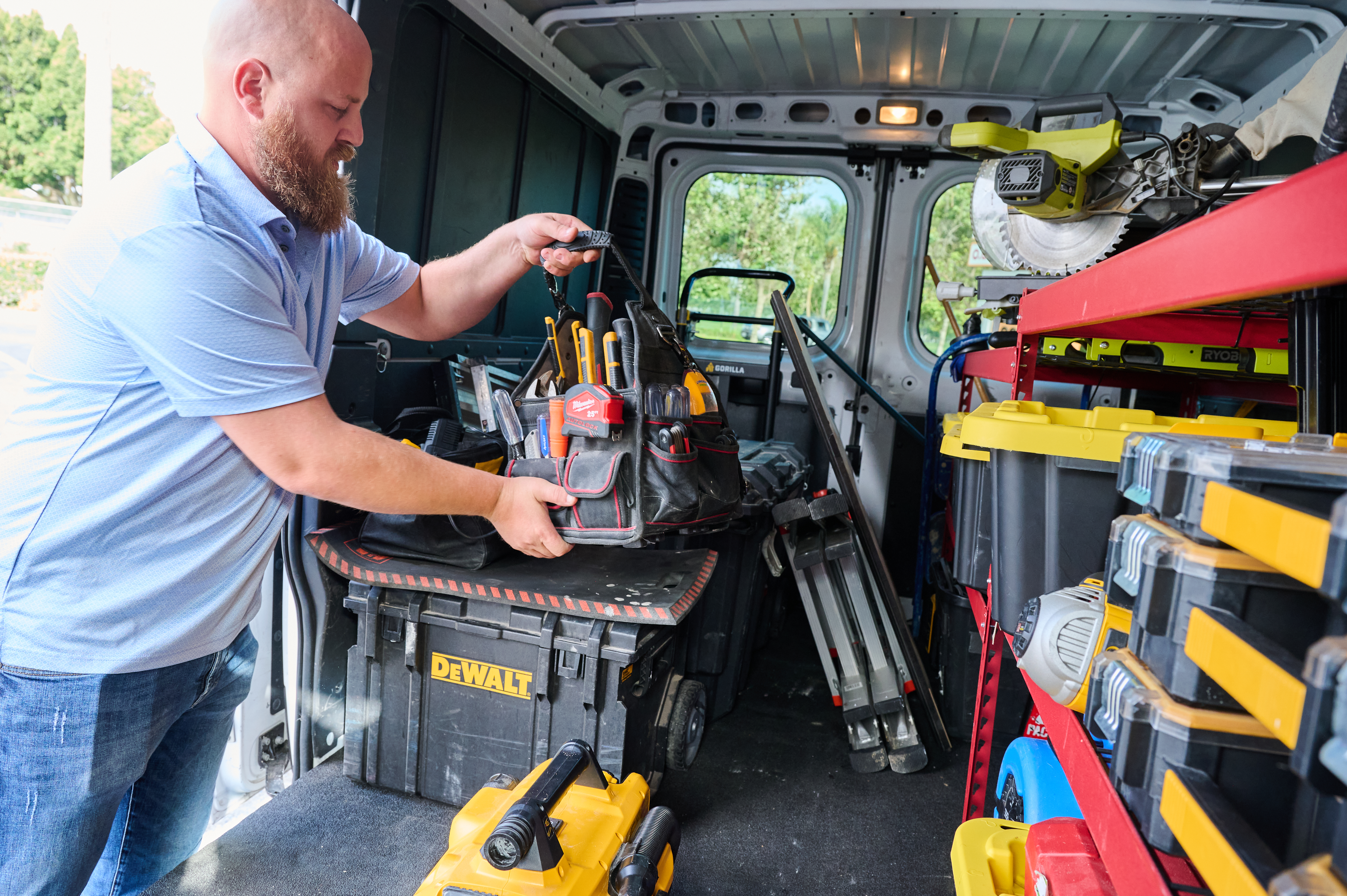
Replacing your electrical panel enhances system reliability and supports modern energy needs. Learn average electrical box replacement costs in New York City.
The cost to install a ground rod for a house ranges from $200 to $500, with an average of $300.


Grounding a house costs $300 on average, with costs increasing if additional electrical work is necessary.
House-grounding costs vary based on local regulations, accessibility, number of grounding outlets and whether you need to add grounding wire.
If your home was built before 1970, you likely need new wiring in addition to installing a grounding rod.
The cost to ground a house or install a grounding rod is $300 on average, but costs range between $200 and $500. Electrical grounding gives excess current a safe route out of your home and into the ground, where it dissipates harmlessly. However, costs can quickly rise if more electrical work is needed to ground the property fully.
While most modern homes come equipped with a grounding rod already in place, many older properties do not. Ungrounded systems are at an increased risk of electrocution and electrical fires. Let’s review how much it costs to ground a house.

Installing a ground rod—sometimes called an earthing rod—costs between $100 and $300, on average. This estimate assumes a straightforward installation with no access limitations and no hiccups.
Usually made of copper or coated steel, a grounding rod is placed near your main electrical service panel. You must tie it to your main service panel to provide a proper ground connection. The grounding rod itself costs around $30.
It's important to remember that a grounding rod is just one part of a home's grounding system. A home without a grounding rod in place usually indicates a lack of grounding wires as well. You should hire a licensed local electrician to perform the installation and guide you on the additional steps needed to protect your home from power surges.
You should hire a professional electrician to install a ground rod. Most electricians can tackle this job in less than an hour, but they might charge a minimum callout fee to cover travel costs and other expenses.
Hiring an electrician costs between $50 and $100 per hour in general. If your home requires running ground wiring to your outlets, you’ll need to plan for more expenses, including:
Installing an outlet: $300
Rewiring: $6,000
While the grounding material cost is uniform across states, the price you’ll pay for the best electrician varies depending on where you live. Electricians charge between $50 to $100 per hour. Electricians in large cities often charge $100 or more an hour. Those in rural areas charge less, typically around $50 per hour.
Plus, your jurisdictions might have other requirements that affect your overall project costs. For example, you might need an eight- or 10-foot grounding rod to meet residential electrical service grounding requirements. National Electrical Code might also require copper rods over steel or aluminum, or two rods to achieve the required grounding resistance levels.
The price to upgrade your electrical system with grounding methods will vary based on a few factors: labor costs in your area, local code requirements, accessibility, and additional wiring needs.
If your electrician must work on difficult terrain to drive a rod through hard or rocky ground, it will add time to the project and increase the costs.
After installing the grounding rod, you’ll need to tackle the outlets—assuming you already have grounding wiring in place. Grounding an outlet costs between $135 and $300 per socket. This is a pretty simple job that requires switching out a two-pronged outlet for a grounded three-pronged outlet.
Just installing a copper rod and connecting it to your electrical panel won't fully ground your house if there isn't grounding wire running through it. (This is likely the case if your home was built before 1970, when grounded wiring wasn’t required.) Budget for more extensive electrical work to bring your electrical system up to code.
Grounding wires cost $6 to $8 per linear foot, or roughly $130 to $170 per outlet. If you need to upgrade your knob and tube wiring—meaning, you need to rewire the whole house—costs rise rapidly. Rewiring a house costs $2 to $4 per square foot, or $4,000 to $8,000 to rewire a 2,000-square-foot home.
As with most advanced electrical work, we don’t recommend grounding rod installation as a DIY project. Most local authorities require a licensed electrician near you to perform electrical work so it’s up to code.
Electrical projects come with major risks if you don't know what you're doing, so here’s why you should hire a pro:
Electricians understand local electrical codes and ensure your grounding system meets all legal and safety requirements.
Pros know the correct depth, spacing, and materials needed to achieve effective grounding and prevent future electrical issues.
Handling grounding rods involves working with live electrical systems and buried wiring. These tasks are best left to professionals to avoid injury or damage.
Electricians can test your home’s existing grounding and electrical system to identify and fix underlying problems.
A professional installation reduces the risk of electrical surges, equipment damage, and potential fire hazards.
Electricians can handle necessary permits and coordinate inspections to keep your project fully compliant.
Saving money on a grounding project can help you redirect funds toward other home improvements. To save money on the installation, consider the following tips:
Shop around for materials: Compare prices at different hardware stores and online to find the best deals on grounding rods and related materials. Talk with your electrician to ensure you’re getting the best price on materials.
Proper planning: Plan the installation carefully to avoid mistakes that could require additional materials or labor, which add to the overall cost.
Avoid unnecessary upgrades: Stick to the necessary components and avoid any unnecessary upgrades that can increase costs.
Get quotes from multiple electricians: Get installation quotes from at least three electricians to see who offers the best deal and service.
Installing a grounding rod primarily addresses safety and electrical code issues rather than directly improving your home value. Still, it’s something buyers may appreciate, especially considering that proper grounding reduces the risk of electrical shock and fire, making the home safer for future homeowners.
Discuss the types of grounding rods and wiring materials available, including copper versus galvanized steel, and which is best for your soil and budget.
Ask how long the installation will take and whether power will need to be shut off temporarily.
Provide information about your property layout, location of the main electrical panel, and any existing grounding system.
Inform the electrician about underground utilities, irrigation systems, or other potential hazards in the area.
From average costs to expert advice, get all the answers you need to get your job done.

Replacing your electrical panel enhances system reliability and supports modern energy needs. Learn average electrical box replacement costs in New York City.

Rewiring a house in New York City can fix out-of-date wiring and provide electrical systems with modern capabilities, but owners must plan for the electrician's costs appropriately.

How much does it cost to add an electrical outlet in New York City? Explore typical price ranges, permitting needs, and what drives cost in NYC homes.

Wondering how to tell if a circuit breaker is bad? There are several warning signs you should know to help keep your family, home, and electronics safe from shortages and fires. Keep reading to learn the signs to watch out for with circuit breakers.

If you use several electrical appliances in your home simultaneously and the power shuts down, an overloaded circuit could have tripped the breaker. Follow these simple steps to reset your breaker.

Wondering who to call for a fast and easy lamppost installation? Our guide covers who should install a lamppost and the general cost for this project.